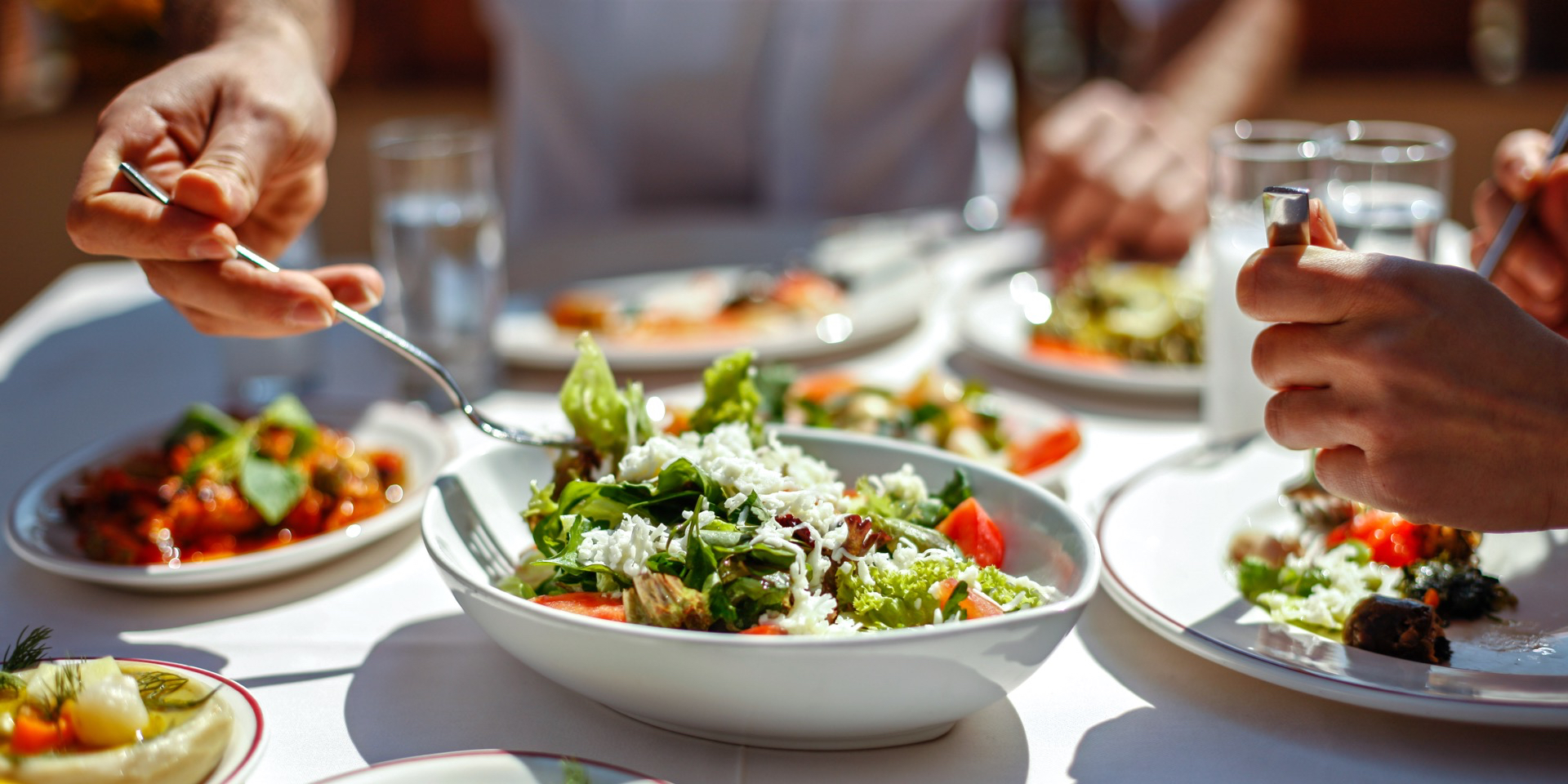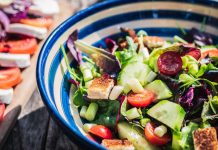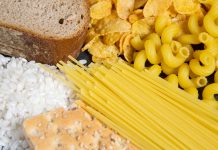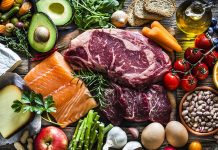We all know that what we put into our bodies can have a direct impact on our health. It’s the reason we’re so frequently bombarded by different diet options, all promising in one form or another to help us “lose weight,” “feel fresh and energetic” or even to “cure autism and reverse chronic fatigue.” Fad diets aside, dietitians, nutritionists and healthcare professionals mostly agree on what’s really good for us: minimally processed, plant-based whole foods. In other words, a vegetarian diet.
The benefits
A vegetarian diet isn’t a miracle cure, but it will promote better health and longevity in those who follow it. In 1948, Dr Mervyn Hardinge became a pioneer in the field when he began a study into the nutritional status of vegetarians and nonvegetarians, at a time when vegetarian diets were perceived to be less than ideal for good health. But even though he was met with considerable opposition, he persisted and found that a vegetarian diet can indeed offer significant health benefits. His findings were only grudgingly accepted at first, but today they are widely acclaimed.
Studies now demonstrate conclusively that a vegetarian diet provides definite health benefits. Take, for example, T. Colin Campbell’s 2004 best-selling book on nutrition, The China Study, where, after years of intensive study of two groups of Chinese with contrasting lifestyles and diets, he concluded that “everything in food works together to create health or disease…. The evidence now amassed from researchers around the world shows that the same diet that is good for the prevention of cancer is also good for the prevention of heart disease, as well as obesity, diabetes, cataracts, macular degeneration, Alzheimer’s, cognitive dysfunction, multiple sclerosis, osteoporosis and other diseases…. There is one diet to counteract all of these diseases: a whole foods, plant-based diet.”
At around the same time, Dan Buettner and the National Geographic Society began talking about “Blue Zones”—places around the world in which the local population live significantly longer. Their diets? Largely vegetarian, including plenty of legumes.
This past March, JAMA Internal Medicine, a journal of the American Medical Association, published studies showing that a plant-based diet offers significant protection against cancers of the colon and rectum, the second leading cause of cancer death in Australia after prostate cancer.
Potential pitfalls
Of course, nothing in this world is perfect and so, if you do intend to adopt a vegetarian diet, the following are some things you’ll need to watch out for:
Protein
Nonvegetarians often argue that a vegetarian diet is deficient in protein. Protein makes up about half of the human body’s dry weight—brain cells, muscle, skin, hair and nails are some of the body parts that are protein-based. Protein builds and repairs tissues, and it’s vital for the production of haemoglobin.
While it’s true that meat products are the most common source of protein in modern diets, vegetarians are certainly not without viable options that may in fact have an advantage over their meat-eating counterparts. In 2013, the Medical Journal of Australia (MJA) published an article that concluded, “The consumption of plant proteins rather than animal proteins by vegetarians may contribute to their reduced risk of chronic diseases such as diabetes and heart disease.”
More importantly, while the body cannot produce its own protein (and neither can it store protein) we don’t need as much of it as we may think and many people actually consume far more than they need.
While proteins from animal and plant sources do perform different functions, the MJA article also noted that “there is no need to consciously combine different plant proteins at each meal as long as a variety of foods are eaten from day to day, because the human body maintains a pool of amino acids which can be used to complement dietary protein.”
Protein sources for vegetarians
- legumes such as soybeans, chickpeas, lentils, kidney beans, split peas and baked beans
- soy products, such as soy beverages, soy yoghurt, tofu and tempeh
- nuts and seeds
- dairy foods and eggs
Iron
Since iron is found abundantly in meat products, the lack of this mineral in plant foods is another reason why many people reject a vegetarian diet. One of iron’s most important functions is to transport oxygen in the blood and the most common symptom of iron deficiency is a lack of energy and feeling weak, irritable or unable to focus.
Iron deficiency affects about a quarter of the global population—and that includes both vegetarians and nonvegetarians. While it’s true that plant-derived iron can be difficult for the body to absorb, this is usually negated by the fact that vegetarian diets are typically rich in vitamin C, which enhances the absorption of iron.
In a study conducted in 2012, researchers found that even for nonvegetarians, most of the iron in the Western diet comes from plant foods rather than meat.
Iron sources for vegetarians
- wholegrain and iron-fortified foods such as bread, cereal and cereal products
- ancient grains such as amaranth and quinoa
- nuts and seeds
- dried beans and legumes, including peanuts and lentils
- tofu
- dried apricots
- dark, green leafy vegetables such as spinach and broccoli
Zinc
Our bodies need zinc for metabolism and to keep our immune systems healthy. While zinc is readily available in many vegetarian-friendly foods, the phytic acid (a form of phosphorous) found in legumes, unrefined cereals, seeds and nuts inhibits the absorption of zinc. Yet, studies have shown that, compared to nonvegetarians, vegetarians in the Western world do not have significantly lower levels of zinc, thanks to modern processing methods and the wide variety of plant-derived foods that are rich in zinc.
Zinc sources for vegetarians
- soaking, fermenting and sprouting legumes, whole grains, seeds and nuts will reduce phytate and make zinc more easily absorbed
- fortified breakfast cereals and bread
- brown rice
- soy products such as tempeh and tofu
- the acids found in citrus fruits, apples and grapes also enhance zinc absorption
Vitamin B12
This is an important one for vegetarians to note, because vitamin B12 is essential for a healthy nervous system and for making red blood cells—and it’s found almost exclusively in animal-based foods. A vitamin B12 deficiency can lead to severe health problems, including irreversible nerve damage and neurological disorders.
Vitamin B12 sources for vegetarians
- fortified foods such as soy milk, vegetarian burgers and yeast extracts
- dairy and eggs
- vegans, who avoid the use of dairy products and eggs, should take a B12 supplement
Omega-3
Awareness of the importance of omega-3 polyunsaturated fats for a healthy heart and to fight a range of diseases has intensified in recent years, with industry experts pushing for the consumption of oily fish or fish oil supplements. And while studies so far have shown that vegetarians do not exhibit clinical signs of deficiency, they do possess lower levels of omega-3 than their nonvegetarian counterparts.
Omega-3 sources for vegetarians:
- linseed (sometimes called flaxseed)
- walnuts
- pumpkin seeds (sometimes called pepitas)
- green leafy vegetables
- eggs
With a mindful and balanced approach to a vegetarian diet, you will not miss out on any essential nutrients for great health. In fact, you’ll be on your way to better health!
There are two kinds of vegetarian diets:
A lacto-ovo (lacto, meaning milk; ovo, meaning egg) vegetarian diet includes products that are derived from live animals, such as eggs, milk and cheese.
A vegan diet excludes all animal products. Some vegans even exclude honey because it is a product of animals.
A vegetarian meal plan
Breakfast
- 2 wholegrain wheat biscuits
- 4 strawberries
- 10 g chia seeds
- ½ cup low-fat fortified soy milk
- slice multigrain toast with 1 poached egg
Snack
- 30 g cashews
- 6 dried apricot halves
Lunch
- 1 wholegrain pita flatbread with chickpea falafel and hummus
- ½ cup tabouli
- salad
Snack
- banana with wheat germ smoothie (made with ¾ cup low-fat fortified soy milk, 2 tsp wheat germ and 1 banana)
Dinner
- stir-fried greens with tofu (for example, asparagus, bok choy and snowpeas)
- 1 cup cooked brown rice
Snack
- hot chocolate made with 1 cup of low-fat fortified soy milk and 10 g fortified malted chocolate powder
Melody Tan is project manager of Mums at the Table. She lives in Sydney with her husband and son. A version of this article first appeared on the Signs of the Times Australia/New Zealand website and is republished with permission.


















